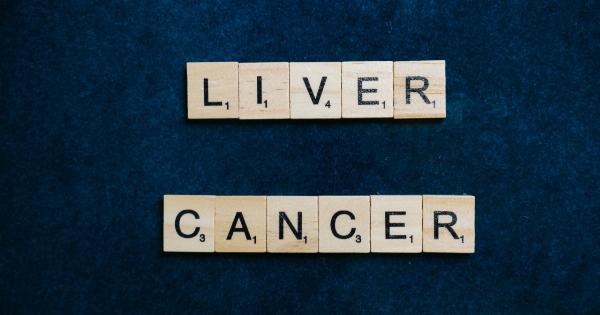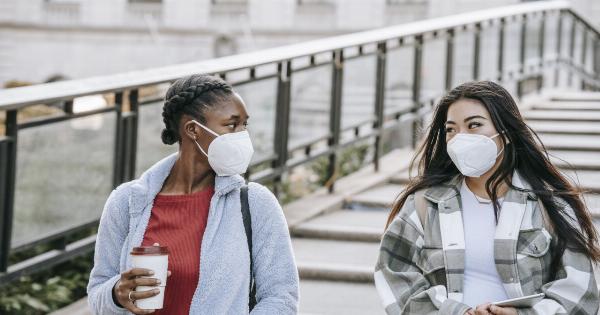Liver cancer is a type of cancer that begins in the liver cells. The liver, the body’s largest internal organ, is responsible for filtering toxins from the blood, producing bile to aid in digestion, and storing glucose as an energy source.
Liver cancer can develop when damaged liver cells begin to grow out of control, forming a tumor.
Symptoms of Liver Cancer
Liver cancer may not cause any symptoms in its early stages. However, as the tumor grows, symptoms can include:.
- Weight loss
- Abdominal pain and swelling
- Loss of appetite
- Nausea and vomiting
- Fatigue
- Jaundice (yellowing of the skin and eyes)
- Unusual bruising or bleeding
- Enlarged liver or spleen
Causes of Liver Cancer
There are several factors that can increase a person’s risk of developing liver cancer, including:.
- Hepatitis B or C: Chronic hepatitis B or C infection is one of the most common risk factors for liver cancer. These viruses can cause liver damage, which can lead to the development of cancer over time.
- Cirrhosis: Cirrhosis is a condition in which liver tissue is replaced by scar tissue. People with cirrhosis have a higher risk of developing liver cancer.
- Alcohol consumption: Heavy alcohol consumption can cause liver damage and increase the risk of liver cancer.
- Nonalcoholic fatty liver disease: This condition is characterized by the accumulation of fat in the liver. It is becoming increasingly common and can increase the risk of liver cancer.
- Aflatoxin: Aflatoxin is a toxin produced by a fungus that can contaminate certain types of food, such as peanuts and corn. Long-term exposure to aflatoxin can increase the risk of liver cancer.
Treatments for Liver Cancer
The treatment for liver cancer depends on several factors, including the size and location of the tumor, whether it has spread to other parts of the body, and the person’s overall health. Some of the treatment options for liver cancer include:.
- Surgery: Surgery to remove the tumor is often the preferred treatment for liver cancer. However, it is only an option if the tumor is small and has not spread to other parts of the liver or body.
- Chemotherapy: Chemotherapy involves using drugs to kill cancer cells. It can be administered orally or intravenously and is often used in combination with other treatments.
- Radiation therapy: Radiation therapy involves using high-energy rays to kill cancer cells. It is often used in combination with other treatments.
- Liver transplant: In some cases, a liver transplant may be the best option for treating liver cancer. This is only an option if the cancer has not spread outside of the liver and a suitable donor liver is available.
Preventing Liver Cancer
While there is no guaranteed way to prevent liver cancer, there are several steps that can be taken to reduce the risk:.
- Get vaccinated for hepatitis B: The hepatitis B vaccine is highly effective at preventing infection with the virus.
- Avoid hepatitis C: Hepatitis C is spread through contact with infected blood. Avoid sharing needles or other personal items that might have come into contact with infected blood.
- Drink alcohol in moderation: Moderate alcohol consumption is defined as no more than one drink per day for women and up to two drinks per day for men.
- Maintain a healthy weight: Being overweight or obese can increase the risk of liver cancer. Maintaining a healthy weight through diet and exercise can lower the risk.
- Eat a healthy diet: A diet rich in fruits, vegetables, whole grains, and lean proteins can help reduce the risk of liver cancer.
- Limit exposure to aflatoxin: Avoid eating foods that are known to be high in aflatoxin, such as peanuts and corn.
Conclusion
Liver cancer is a serious condition that can have a significant impact on a person’s health and well-being.
However, by understanding the symptoms, causes, and treatments for liver cancer, it is possible to make informed decisions about your health and take steps to reduce the risk of developing this disease.






























